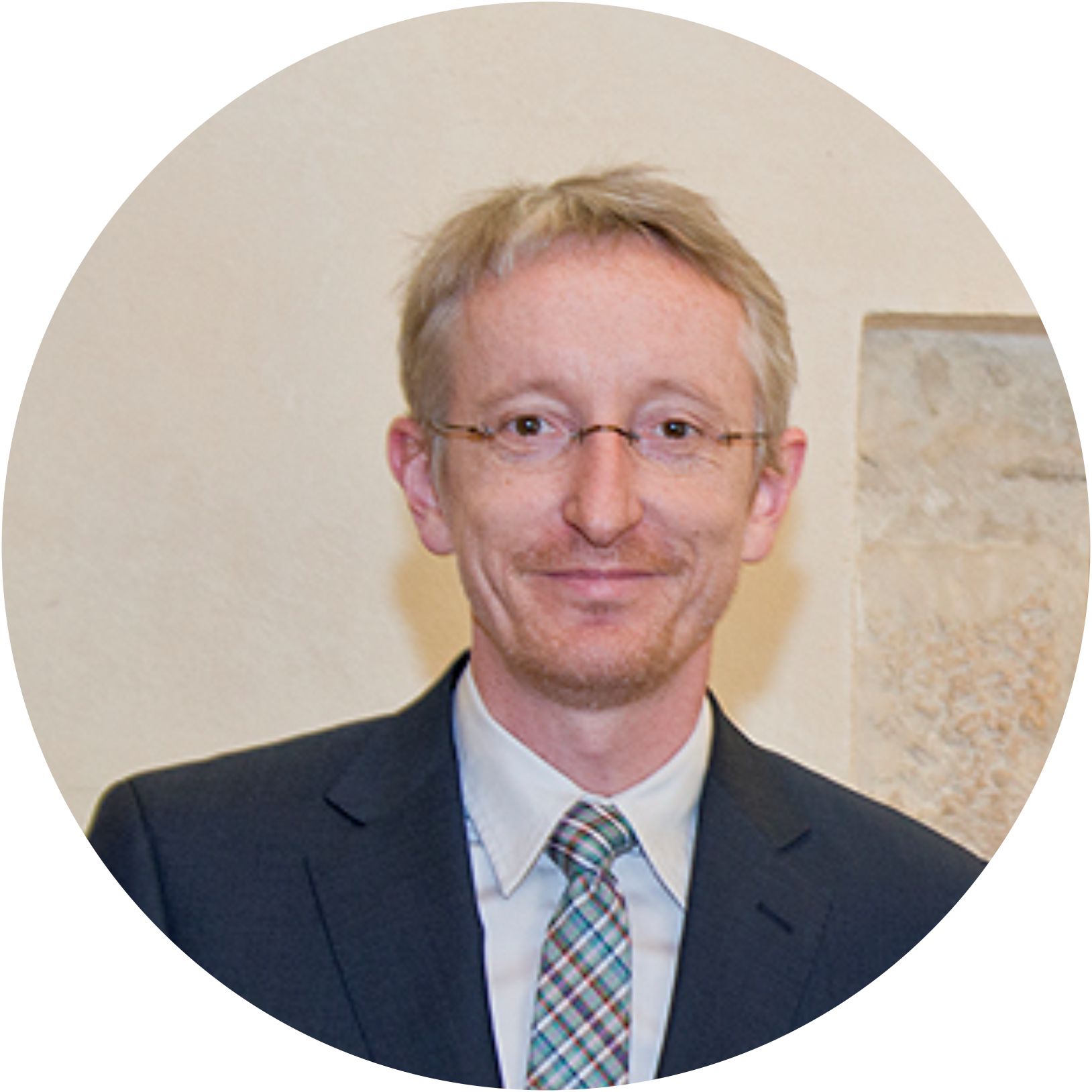"Most people think that only about half of medical doctors believe in vaccines against Covid-19. In fact, 90 percent do! We have shown that communicating this consensus is a simple and long-lasting way to increase willingness to be vaccinated," summarize Michal Bauer and Julie Chytilová, co-authors of a new study in the prestigious journal Nature.

Julie Chytilová and Michal Bauer. Photo by Jana Plavec, Czech Academy of Sciences.
A team of four Czech economists, brought together by Charles University many years ago, have for the first time ever managed to publish a social science study in one of the most prestigious scientific journals, Nature. They found that 90 percent of Czech medical doctors trust vaccines against Covid-19, yet most people think that doctors' opinions are split roughly 50-50. They also showed that simply informing about the broad consensus of experts is a simple, inexpensive and long-term way to increase vaccination rates in the population. Indeed, people's reluctance to be vaccinated often comes from the inaccurate belief that doctors themselves do not trust vaccines. This misperception is most likely caused by media, which, in an attempt to look objective, give equal space to extreme opinions without emphasizing their frequency and the majority opinion of experts.
What increases vaccination coverage? Facts!
"In February 2021, in cooperation with the Czech Medical Chamber, we conducted a large questionnaire survey among Czech doctors, involving 10,000 participants. We found that 89 percent of doctors trust the approved Covid-19 vaccines. At the same time, 90 percent of them had already been vaccinated or were planning to be vaccinated. Up to 96 percent of doctors would then recommend the vaccine to their healthy patients," summarizes Julie Chytilová.
At the same time, however, the longitudinal survey Life During a Pandemic conducted by authors in cooperation with PAQ Research showed that the public inaccurately believes that only 60 percent of medical doctors trust the approved vaccines and that only 57 percent of them want to be vaccinated. "We were surprised that such clear-cut findings documenting systematic misperceptions did not receive much media attention, so we decided to investigate this issue further and back up its importance with hard data," explains Michal Bauer.
Therefore, in March 2021, a randomly selected half of the respondents of the Life During a Pandemic survey were given the information that 90 percent of doctors trust vaccines and get vaccinated. The other half of the survey participants were not given this information. "This allowed us to credibly estimate the role that knowledge of the real views of the medical community plays in willingness to be vaccinated," says the study's co-author. Then, over the next nine months, the researchers tracked whether respondents got vaccinated.
"We found that providing information about expert consensus increased vaccination uptake by 4.5 percentage points. This means that the number of unvaccinated people decreased by approximately 15-20 percent. Moreover, this one-time communication of the information had a stable and long-term effect - the higher willingness to be vaccinated persisted for at least nine months and contributed to increased interest in a third dose," Julie Chytilová explains, adding that they were surprised by the persistence of the effects. "We did not expect that a 'one-minute' reading of a short text about doctors' opinions could have such a significant impact even after nine months."
Media bias
"The results of our study show that communicating the broad consensus about the benefits of vaccination among doctors is a cheap and long-lasting way to increase interest in vaccination," summarizes Michal Bauer their new paper in Nature.
The authors of the study also believe that public misperceptions about the views of the medical community are likely due to the media's efforts to convey opposing views on controversial topics. "Giving equal space to opposing opinions creates the appearance of objectivity. However, without context and emphasiyzng the degree of agreement - the frequency of a given viewpoint - this leads to a distorted perception of reality and a weakened ability to tackle societal challenges. Journalists should therefore provide context and report more on the consensus of opinion among the professional community," says Chytilová.
According to the authors, magnified perceptions of expert divisions that may weaken the ability to address global challenges are very likely to apply to many other areas, such as the climate change debate. "Thus, the results of this study are likely to be relevant to a number of other issues, and the current pandemic is just one example of a more general phenomenon," Bauer adds.
Ingredients for success in Nature
This is the first time that Czech scientists have published a study in the social sciences in one of the world's most prestigious scientific journals. What is the recipe for success in Nature? "It is probably a combination of luck, the topical subject, the size and quality of the data and the strength of the results," summarizes Julie Chytilová. "And maybe a few previous failed attempts helped too. One learns a lot from that. For Nature, it's a slightly different style of writing than we're used to in economics," Bauer adds with a smile.
"A big advantage of our study was the long-term collaboration with Daniel Prokop and involvement in the Life During the Pandemic research. A huge “thank you” to all respondents for repeatedly sharing their attitudes and behaviors since the beginning of the pandemic," the study authors say.
The quality of the data was also a major concern of the reviewers; for example, they were interested in whether the research participants might have been making things up. "We had to find ways to prove that people were not misreporting in the questionnaires. Firstly, people who received information about the expert´s consensus in March 2021, would have had to infer that we would have been pleased if they had started to fill in their vaccination uptake at the exact time they could have been vaccinated according to their age group, and to report their increased interest nine months later in the context of a third dose, for example," the researchers comment. That people are not making things up was also verified by an independent questionnaire survey by another agency and by asking for specific information about the vaccine that only vaccinated people can find in their covid certificate.
The quartet of economists involved in the research have been working together for a long time, although mostly on topics related to poverty, the causes of discrimination and conflict. "The other two co-authors are great examples of young scientists who received their PhDs from CERGE -EI and now have very successful academic careers abroad. Jana Cahlíková is currently working at the Max Planck Institute in Munich and Vojtěch Bartoš worked at the University of Munich and is now moving to the University of Milan," comments Bauer and Chytilová, who work together at CERGE-EI and the Institute of Economic Studies at the Faculty of Social Sciences of Charles University. "We like to do interdisciplinary social science research. During the pandemic, it soon became clear that it was not enough to develop a vaccine, but that we also need to take on board lessons from behavioral sciences to understand why so many people do not get vaccinated. Our aim was to contribute to the current debate, by providing data on the reasons for the reluctance to be vaccinated and to offer possible solutions. Hopefully, these results will be useful," conclude the researchers, whose findings have already found their first application, for example in the vaccination campaign of the General Health Insurance Fund (VZP).
What do the colleagues from CERGE-EI say about the study?
 Štěpán Jurajda: The exceptional scientific success of this team from the Economics Institute of the Czech Academy of Sciences and Charles University shows not only the excellence of scientific work in economics at these workplaces, but above all, the crucial role that empirical social sciences can play in helping to manage social crises. The main problem of the epidemic was not the ability to develop vaccines, but the ability to set up effective communication strategies that support the willingness of the public to get vaccinated. Addressing the future societal challenges of aging, adaptation to climate change and immigration, market regulation, misinformation, and the protection of democracy will ultimately depend on the ability to inform public policies with useful evidence. Unfortunately, the social sciences in our country have long been underfunded relative to other academic fields in international comparisons, and support of excellence in this field remains very limited.
Štěpán Jurajda: The exceptional scientific success of this team from the Economics Institute of the Czech Academy of Sciences and Charles University shows not only the excellence of scientific work in economics at these workplaces, but above all, the crucial role that empirical social sciences can play in helping to manage social crises. The main problem of the epidemic was not the ability to develop vaccines, but the ability to set up effective communication strategies that support the willingness of the public to get vaccinated. Addressing the future societal challenges of aging, adaptation to climate change and immigration, market regulation, misinformation, and the protection of democracy will ultimately depend on the ability to inform public policies with useful evidence. Unfortunately, the social sciences in our country have long been underfunded relative to other academic fields in international comparisons, and support of excellence in this field remains very limited.
 Filip Matějka: This is an extremely useful result for current events, not only within the context of Covid and, of course, not only for our country. My colleagues show that the public uses exactly the information that would convince wise people. The information is: what percentage of doctors have been vaccinated themselves and how many of them recommend it to their patients. We do not need to be persuaded by charismatic actors, nor do we need to have one voice for and one against in the media, when 90 percent of experts are in favor. People understand clear statistics. I think this is the first article ever written by Czech economists to be published in Nature. A great success.
Filip Matějka: This is an extremely useful result for current events, not only within the context of Covid and, of course, not only for our country. My colleagues show that the public uses exactly the information that would convince wise people. The information is: what percentage of doctors have been vaccinated themselves and how many of them recommend it to their patients. We do not need to be persuaded by charismatic actors, nor do we need to have one voice for and one against in the media, when 90 percent of experts are in favor. People understand clear statistics. I think this is the first article ever written by Czech economists to be published in Nature. A great success.
 Daniel Münich: This is a huge scientific success of Czech research. Only 108 articles have been published with at least one Czech co-author in one of the world's most prestigious scientific journals in the last 10 years. And in the field of social sciences, this is the only article in which authors working in Czech research institutes play a leading role.
Daniel Münich: This is a huge scientific success of Czech research. Only 108 articles have been published with at least one Czech co-author in one of the world's most prestigious scientific journals in the last 10 years. And in the field of social sciences, this is the only article in which authors working in Czech research institutes play a leading role.



















